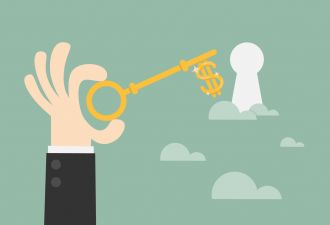Telecom analogies are both endlessly instructive and inherently limited when it comes to thinking about where smart grid is going. Consider this:
When I was a pre-teen, commercials for caller ID boxes were everywhere. I begged my mother to let me buy one for the kids' phone line using her credit card (I would reimburse her, of course). She told me that “only drug dealers and the mob” would need such a contraption.
She was, of course, wrong. Maybe everyone didn't need caller ID, but everyone wanted it. The value of deregulation in the phone industry was not that households saved tons money because of competition. Lots of people did save money at first -- switching from flat rates to nights and weekends, 5-Cent Sundays and the myriad of other pricing plans that popped up.
Then there were the add-ons: caller ID, digital voicemail, cell phones for everyone in the family -- and now everyone pays more. Today, some people pay hundreds of dollars for handsets that offer so much more than calling capabilities. My mother certainly pays more in phone bills than she did when the caller ID box came on the market (not withstanding my teenage long-distance bills).
“There’s this perception that all of this technology will make electricity less expensive,” John Norris, Commissioner at the Federal Energy Regulatory Commission, said at GridWeek. “It won’t. It will make it more efficiently priced. So we have to ask, what is the value we can receive from this?”
The hype of cost savings is an important issue, and one that came up repeatedly at GridWeek. The selling point of saving money should be true in the short term, as people know more about their electricity patterns and can curb their usage or sign up for plans that fit their lifestyle. But the real revolution will go far beyond just different pricing plans. Because electricity is not going to get cheaper in the long haul, many experts at GridWeek argued that utilities need to ditch the argument that everyone will save.
“I worry about the cost savings pitch,” Greg Ennis of the Wi-Fi Alliance said during GridWeek. “Is it really lower rates or is lower rates than there would have been?” Ennis argued that if there were ample deregulation, the technology would play a natural course in the market.
When people have control and visibility into their energy use, they save some money. Endless pilots by utilities show this. But it’s not always a lot of money, and without hardware like smart, connected thermostats, it’s often just a few dollars a month.
Well-designed pricing plans -- such as the ones Salt River Project in Arizona offers -- also help people save money. However, Toronto Hydro, which has mandatory time-of-use pricing, has not led to significant savings for customers because of a too-small pricing spread.
The savings, however, don’t have to be tossed altogether. “Savings done properly will come back to the customer,” argued Kurt Yeager, executive director at the Galvin Electricity Institute. “But you’ll want to spend more because you’ll have more opportunities.” He argued that people would want the bells and whistles, like we have with our telephones. When there is an apps store for energy usage, something that many vendors are just beginning to develop, people will be happy to sign up for services that they deem valuable to their lives. The problem today is that nobody knows what the caller ID of smart grid will be. Deregulation in 50 different states with more than 3,000 utilities isn't as simple as breaking up Ma Bell.
“Maybe we should have called them iMeters and had Apple [see Nest Labs -ed.] sell them,” Mike Oldak, VP and general counsel for the Utilities Telecom Council, said during GridWeek. “We would have people lined up around the block to buy one without even knowing what they do.” The value of the iPhone is not that it’s a great telephone (in fact, it’s a downright lousy one if you’re on AT&T in the New York area), but that it’s a vehicle for apps.
Of course, deregulation in a way that actually encourages competition is elusive in the U.S. More than a dozen states have some deregulation in the electricity market, yet there is little competition. Even Texas, which has the most dynamic deregulated market for electricity, is just starting to see the real differentiated offerings that will allow people to pick based on add-ons and services, and not just generation and contract length.
Cost savings versus add-on services are also not the only selling points. On the distribution side, upgrades allow for more reliable service and for electric vehicles to come on the grid without any hiccups. If utilities can get enough people to drive down peak load, it delays building more generation. There will be multiple messages for multiple consumer segments, according to experts at GridWeek. Segmentation was a hot topic, and will continue to be, because right now, customers don’t care about smart grid or know enough about what it could mean for them down the road.
“Customers are not that interested,” said Ted Schultz, SVP of strategy and innovation at Ecos, an energy efficiency consulting group and formerly at Duke Energy. “I’m in the business and I’m not that interested.”



